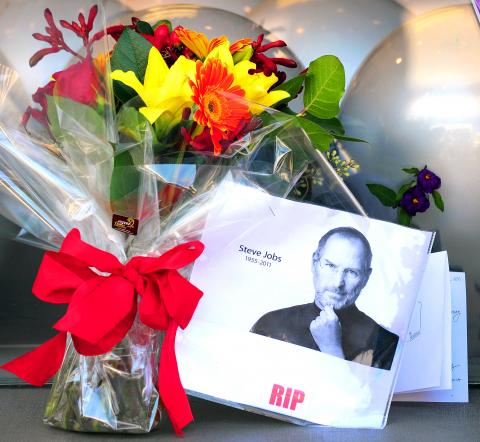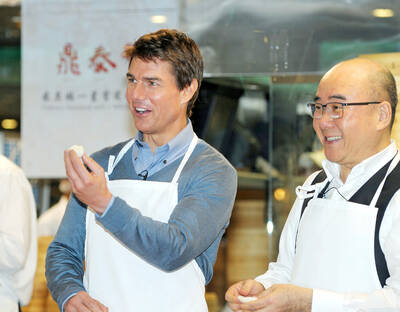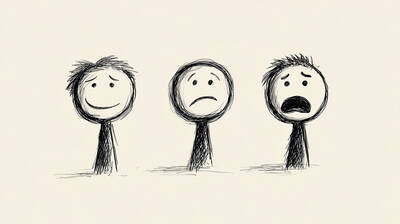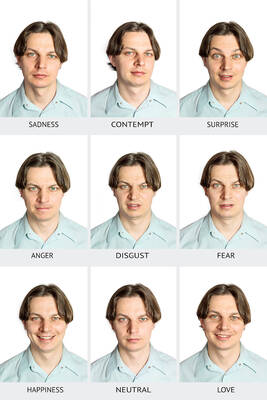Steve Jobs may have had newsmen eating out of his hand when presenting iconic Apple products in later life — but he was not always so smooth a media performer, as some old TV footage shows.
Preparing for a 1978 interview, the young Jobs admits he is so nervous he wants to be sick, and is amazed people can see him live on camera — something his iPad will help make an everyday experience three decades later.
“Look at that. Look, I’m on television. Hey,” he says, seeing himself in a monitor as studio assistants prepare him for the live appearance, inserting an earpiece so he can hear the interviewer.

Photo: AFP
照片:法新社
“Isn’t that amazing?” someone asks, to which the bearded Jobs, dressed in distinctly 70s style, enthuses, “Yeah it is.” Told that he was live on screen in New York too, he asks incredulously: “Am I really, are you serious?”
Jobs, who died last Wednesday at 56, became famous in recent years for his presentations of iPods, iPhones and the iPad to rapt audiences at Apple’s California headquarters.
His iconic products, combined with the Internet, have made talking live and on camera commonplace for millions of ordinary people in their everyday lives.
But back then Jobs was having problems just keeping his nerves under control for the interview, according to the footage re-run on CNN in the wake of his death from cancer.
After flustering about whether he can get up and walk about once wired-up for the interview, and before he goes on live, he first asks for a glass of water — and then decides he needs some relief.
“You need to tell me where the restroom is too, ‘cause I’m definitely ill actually, and ready to throw up at any moment,” he says.
(AFP)
史蒂夫‧賈伯斯在人生後段發表劃時代蘋果產品時,令記者們對他大為折服─但他並非像一些電視片段所呈現那般,天生就能在媒體前能言善道。
青澀的賈伯斯,為了準備一九七八年的一場專訪,坦承他因為太緊張而想要裝病,並且對於民眾可以同步看到他在攝影機前的實況畫面,則是嘖嘖稱奇。三十年後的今天,他的iPad就是讓每位使用者天天都有如此臨場體驗的玩意兒。
當攝影棚助理正為他現場受訪錄影做準備,並為他戴上耳機以聽到訪問者的聲音時,他看見自己出現在螢幕中後說:「瞧那個。喂,來看啊,我上電視了。」
當有人問賈伯斯:「這不是很棒嗎?」一身典型七○年代風格打扮,留著鬍子的賈伯斯滿腔熱血地說:「是啊,真是棒。」當被告知他同時也出現在紐約螢幕上時,他則半信半疑地說:「是真的嗎?你是認真的嗎?」
賈伯斯近幾年在蘋果公司加州總部對著癡迷觀眾,發表iPod、iPhone與iPad而成名。他上週三過世,享年五十六歲。
他劃時代結合網際網路的產品,讓上百萬無名小卒在日常生活中即時互動與上鏡頭,成為司空見慣的事。
根據一段CNN在賈伯斯癌逝後而重播的片段,顯示當時的賈伯斯,無法控制自己受訪時的緊張情緒。
在慌亂擔心一旦專訪準備就緒後他是否還能起來走動,他在現場節目開始之前,他首先要一杯水─而後決定他需要舒緩緊張情緒。
他說:「你也要告訴我廁所在哪裡,『因為我事實上明顯感到不適,隨時都可能嘔吐。』」
(法新社/翻譯:林亞蒂)

A: Wow, US climber Alex Honnold has announced that he’s going to free-climb Taipei 101 on Jan. 24. And the challenge, titled “Skyscraper Live,” will be broadcast worldwide live on Netflix at 9am. B: Oh my goodness, Taipei 101 is the world’s tallest green building. Is he crazy? A: Honnold is actually the climber in the 2019 film “Free Solo” that won an Oscar for best documentary, and was directed by Taiwanese-American Jimmy Chin and his wife. He’s a legendary climber. B: Didn’t Alain Robert, “the French Spiderman,” also attempt to scale Taipei 101 in 2004? A: Yes, but

A: There are always adventurers who want to conquer Taipei 101 as a world-class landmark. Didn’t someone once parachute from the top of it? B: Yeah, that’s right. Austrian extreme sportsman Felix Baumgartner once parachuted from the rooftop observation deck in 2007 without permission. He died earlier last year in a powered paragliding crash at the age of 56. A: Hollywood superstar Tom Cruise also almost jumped off Taipei 101 for “Mission Impossible 3.” B: What? But I didn’t see the building in the movie. A: The news says that the film’s producers applied to the Taipei City

People use far more than just spoken language to communicate. Apart from using our voices to pronounce words, we also use body language, which includes countless facial expressions. Most people know that smiles and frowns indicate pleasure and displeasure, or that wide eyes with raised eyebrows typically show surprise. However, there is a lot more to learn about how facial expressions can help or hinder communication. People often unintentionally reveal their emotions through very tiny facial movements known as “microexpressions.” The term was popularized by psychologist Paul Ekman, who found that people from cultures across the world generally recognize

Continued from yesterday(延續自昨日) https://www.taipeitimes.com/News/lang Microexpressions appear quickly and can disappear in the blink of an eye. They typically last only a fraction of a second, yet they reveal a person’s true emotions. Here’s how to recognize the seven microexpressions. Happiness: The corners of the lips move upward and back, lifting the cheeks. Crow’s feet also form near the outside of the eyes. Sadness: The corners of the mouth turn downward, creating a frown. The eyebrows may also draw closer together. Disgust: The muscles around the nose and eyebrows tighten toward the bridge of the nose. The upper lip rises slightly to reveal the teeth. Surprise: